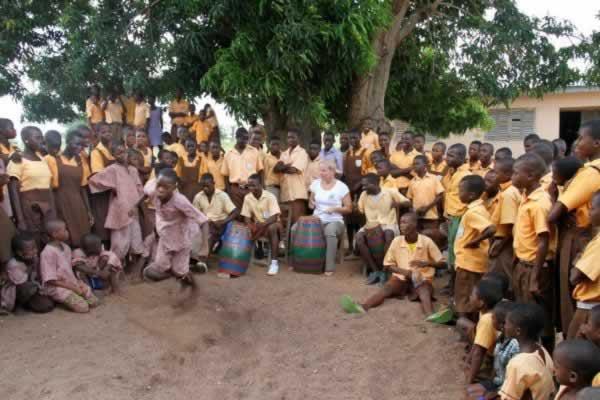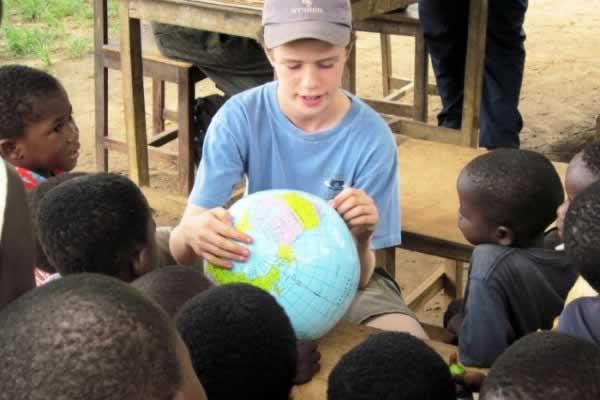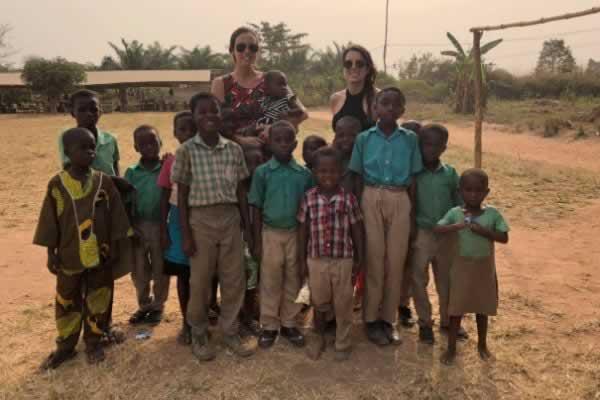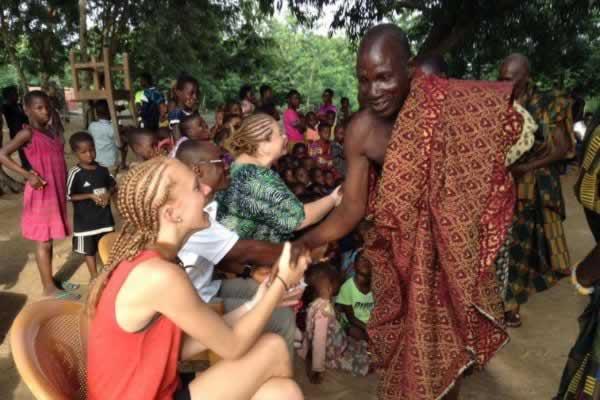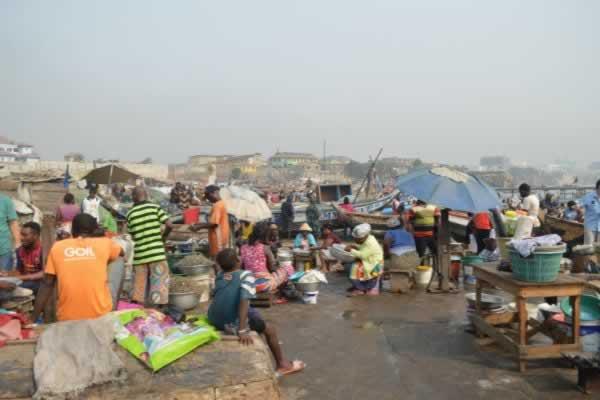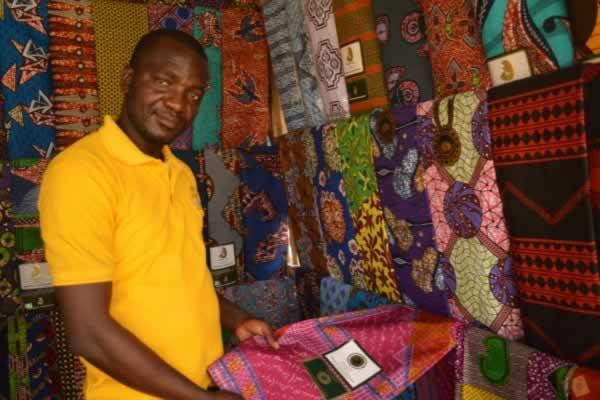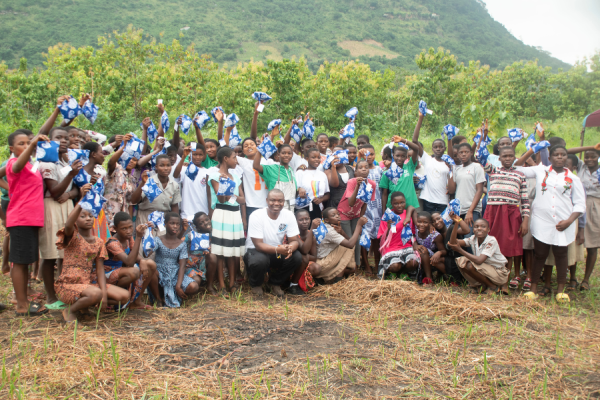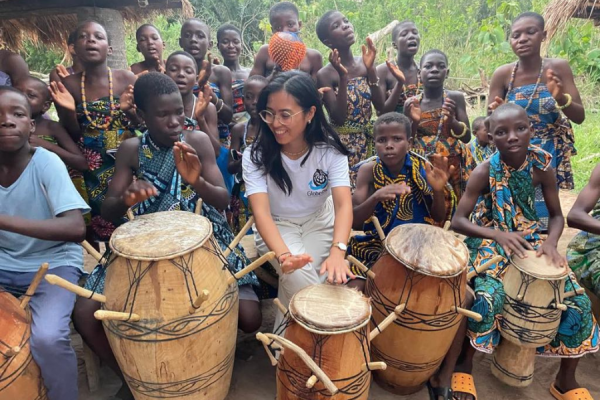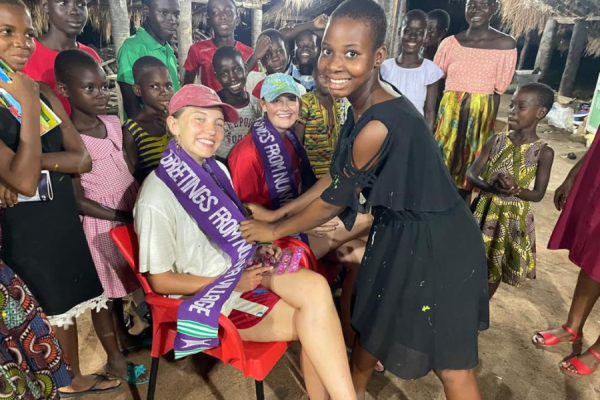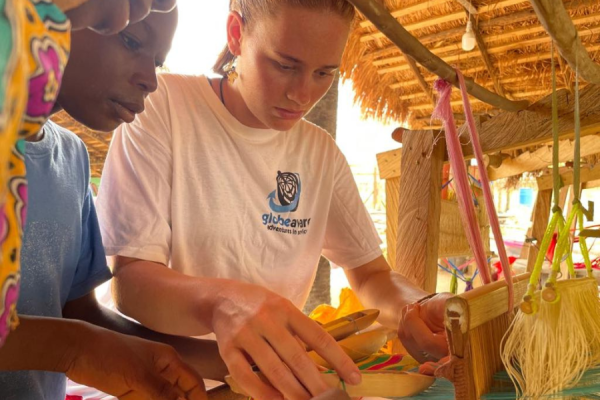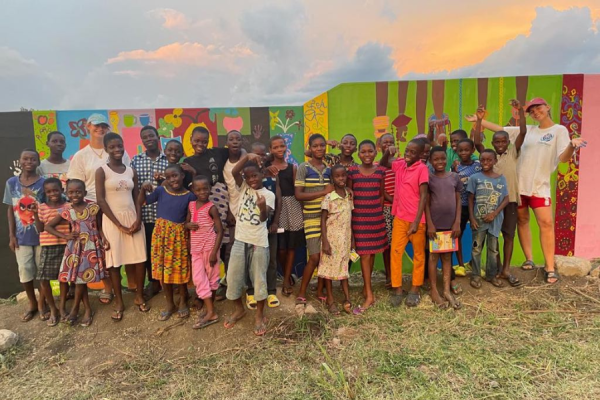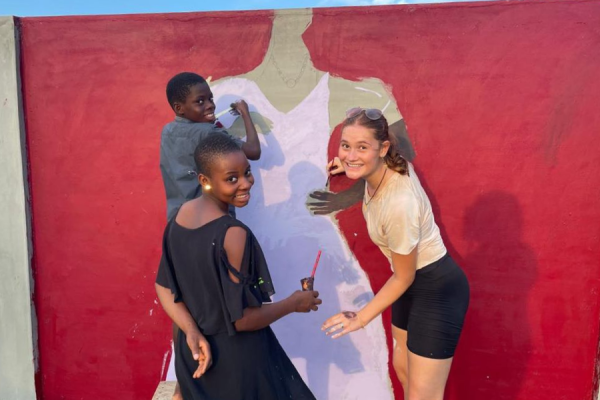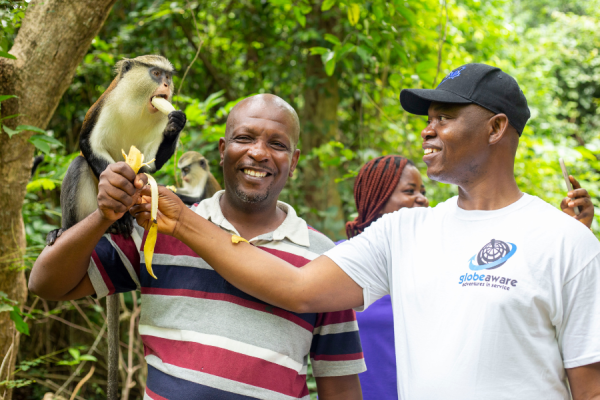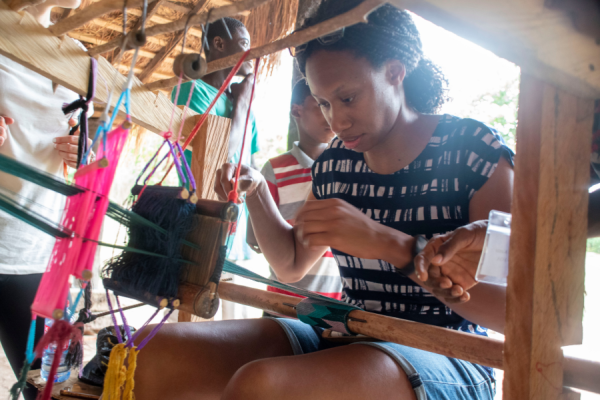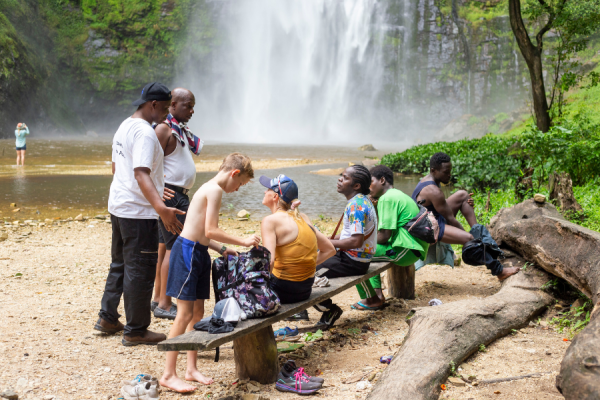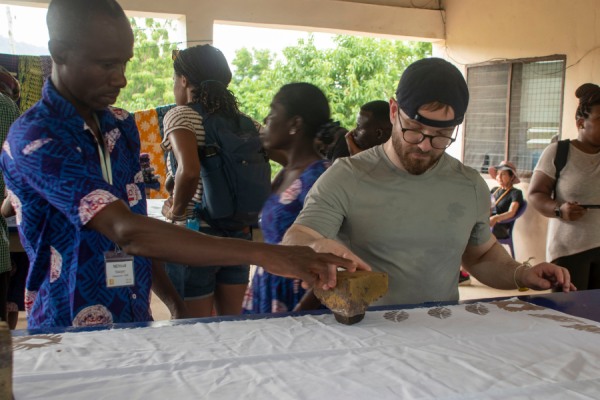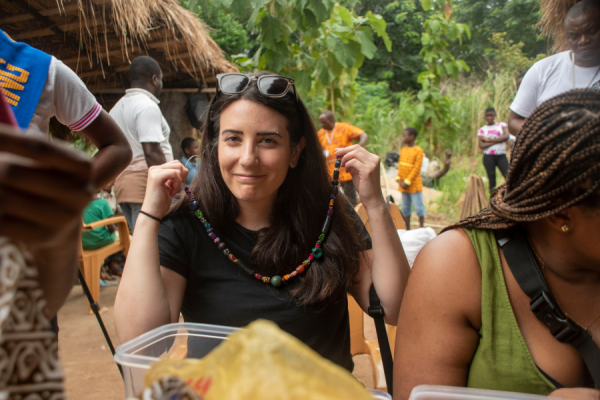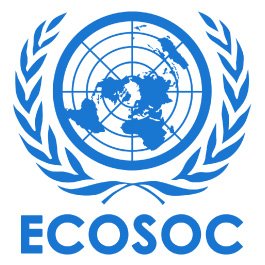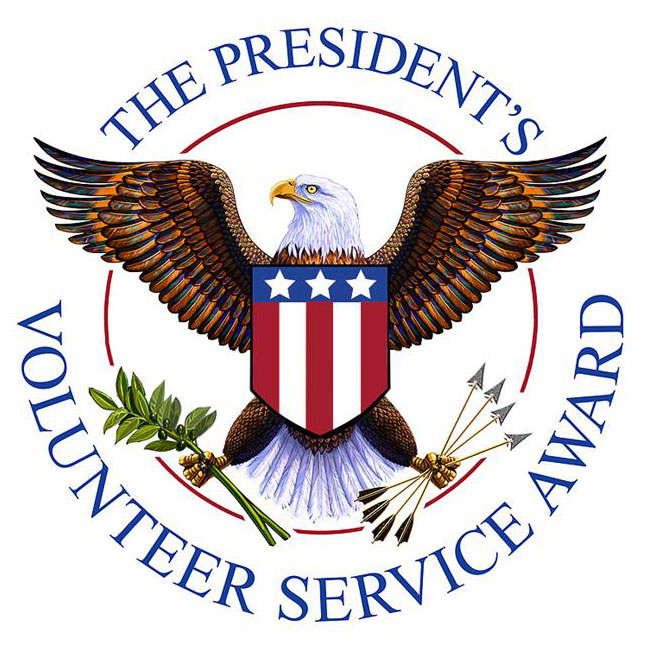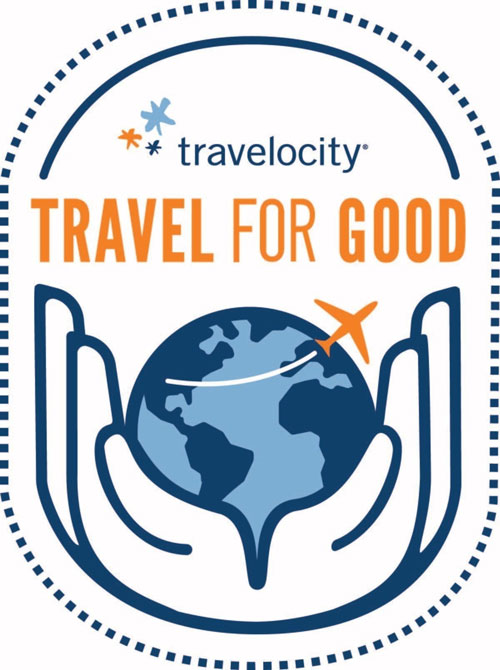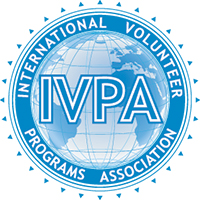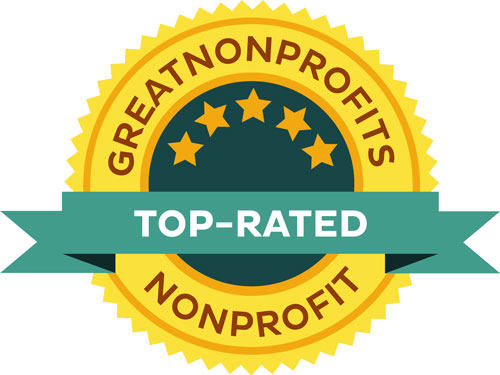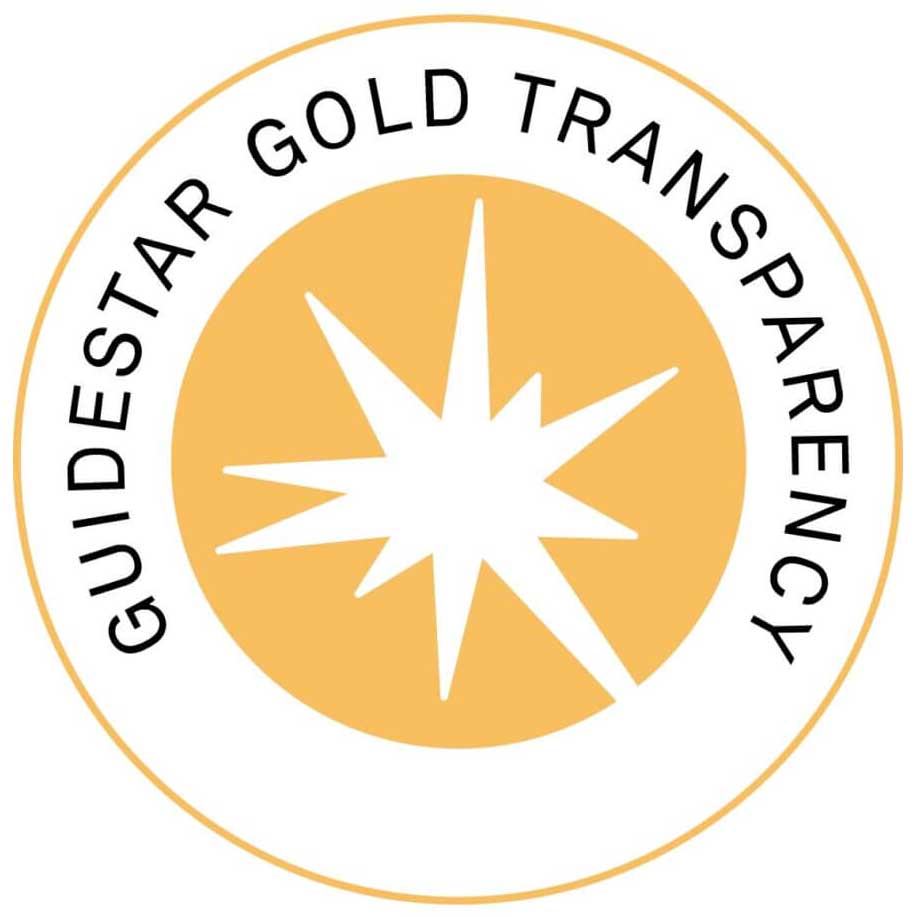Featured Articles Style 2
Featured Articles Style 2
Featured Articles Style 2
Ghana
The Glory of Ghana
Your Globe Aware program is based in Ho, the capital of the Volta Region and ancestral home of the Ewe people. Known as the Oxygen City for its peaceful environment, Ho blends small-town warmth with modern conveniences. Nearby, you’ll find the Wli Waterfalls, Adaklu and Gemi Mountains, Tafi Monkey Sanctuary, and vibrant traditional villages.
Ghana thrives on its rich culture, natural beauty, and resources like gold, cocoa, and oil. Despite economic challenges, it continues to grow through innovation and tourism. The Volta Region captures Ghana’s essence, lush landscapes, welcoming communities, and enduring cultural traditions of storytelling, weaving, drumming, and dance.
Globe Aware works directly with a grassroots NGO dedicated to improving the lives of vulnerable Ghanaians, which also collaborates with local schools and communities. Their programs focus on education, women’s health, entrepreneurship, environmental sustainability, and community-driven development, all strengthened through cultural exchange.
Most of your time will be spent in smaller rural communities around Ho, where a variety of projects are implemented. While the Volta Region’s natural beauty and cultural richness are captivating, local communities still face challenges such as limited access to clean water, inadequate educational infrastructure, unpaved roads, and low digital literacy. Despite these challenges, Ghanaians are known for their hospitality and optimism.
As a common saying in West Africa goes, “If an award were given for the friendliest people in West Africa, Ghana would be a strong contender.” This region offers a meaningful opportunity to contribute while immersing yourself in authentic Ghanaian culture and warmth.
Work Project
Volunteers collaborate with community-designed initiatives, gaining hands-on experience while supporting local development. Projects may include:
Traditional Crafts with Children
Work alongside children to create art from recycled glass, cane, calabash, clay, and fabric. Learn bead-making, Kente weaving, basket weaving, and pottery, while supporting young artisans in developing skills that sustain their livelihoods.
Cultural and Musical Immersion
Join local children and youth for drumming, dancing, and drum-making sessions that celebrate Ghana’s Ewe heritage. This cultural exchange fosters connection, laughter, and a deeper appreciation for traditional performing arts.
Culinary Adventures
Cook and share meals with local families, learning to prepare Ghanaian dishes like jollof rice, fufu, and groundnut soup. These sessions offer a warm and interactive way to experience community life and cultural storytelling.
Menstrual Hygiene Education
Help educate girls in rural schools about menstrual health, breaking stigmas, and promoting dignity. Volunteers create safe spaces for open conversations, empowering girls to stay in school and build confidence.
Fishing, Fish Smoking, and Sustainable Livelihoods in Tsatoe
Assist local fisherfolk with traditional fishing methods, net mending, and discussions on sustainable practices. This hands-on experience provides insight into rural livelihoods and environmental conservation.
Projects vary depending on volunteer numbers, local priorities, weather, and available materials. Final assignments are confirmed one week before arrival and may be adjusted upon arrival. Volunteers’ contributions provide meaningful support while offering an authentic, immersive experience of Ghanaian culture.
Food and Lodging
Volunteers stay together in comfortable community-based homestays. Accommodations typically include running water, showers, flushing toilets, and access to electricity. Hot water is not guaranteed, though occasionally available.
In more rural communities, scoop showers may be used. If this poses a challenge, please inform the coordinators before your arrival.
Meals feature traditional and delicious Ghanaian dishes, such as Jollof rice, grilled fish, stews, and a variety of fresh fruits and vegetables. For adventurous eaters, Banku and Fufu offer a truly local culinary experience. Bottled drinking water is always provided.
Leisure and Activities
Ghana offers a stunning mix of natural beauty, history, and culture.
In your free time, you’ll have plenty of opportunities to enjoy the region’s beauty and culture. Activities include:
- Visiting the largest waterfall in West Africa.
- Climbing the Adaklu Mountain
- Feeding the Mona Monkeys in their natural habitat.
- Exploring a Kente weaving village to learn about Ghana’s famous “cloth of kings.”
- Taking African drumming and dance lessons.
- Playing football with community members and local children.
- Enjoying the stunning view from Mountain Gemi.
- Going fishing or joining in local street celebrations.
History comes alive at sites such as Cape Coast Castle and Elmina Castle, both powerful reminders of Ghana’s role in the transatlantic slave trade. In the capital, Accra, visitors can explore the Kwame Nkrumah Memorial Park, dedicated to Ghana’s first president, and Black Star Square, a national symbol of independence and pride. On the eastern coast, the Keta Lagoon and Fort Prinzenstein reveal the country’s ecological richness and colonial past, completing a journey through Ghana’s diverse and deeply moving heritage.
Arranging Your Airfare
Your adventure begins in Accra, Ghana’s capital. A Globe Aware coordinator will meet you at the Kotoka International Airport, Ghana’s main international gateway. The drive from Accra to Ho takes approximately three hours.
At the end of your volunteer week, you’ll be dropped off at the same airport. Please avoid booking return flights before 11:00 AM.
Safety and Security
Ghana is one of West Africa’s safest and most stable countries, having never experienced a war. Crime rates are very low outside major cities like Accra and Kumasi, and Ghanaians take pride in their peaceful legacy and welcoming spirit. Visitors from large or midsize cities may feel as safe or safer than at home while enjoying their time and volunteering, though standard safety precautions should always be observed. Ghana also has a proud history of supporting other African nations’ independence, reflecting its people's generosity and community spirit.
VERY IMPORTANT. A yellow fever vaccination and the accompanying yellow vaccination card signed by the office that provided the vaccine are required to enter almost all African nations.
Q: What is the cancelation/refund policy?
A: In order to reserve a spot on a Globe Aware adventure, you will need to send a 50% deposit with your completed application. Your entire balance is due 70 days prior to the start date of the adventure of your choice. We accept most major credit cards (American Express, Visa, Mastercard), money order and personal check.
Refund/Cancellation/Transfer Policy
Take care in choosing your program location and dates. If your plans change, you can cancel. You will get a 100% refund, less a non refundable $500 of the deposit, if you cancel at least 70 days prior to the program's start date. After 70 days, it costs us to replace you because we have sent advances from your contributions to the community. You may elect to apply 100% of the deposit to another program if you transfer to another program within twelve months of the original program start date (no handling penalty or fee will be assessed), if we have not yet sent funds for field costs. If you would like to transfer a second time, there is an additional $150 change fee in addition to any difference in the minimum contribution fee. Other than this, the deposit is never refundable, unless Globe Aware has to cancel a program. In the rare and unlikely event that Globe Aware has to cancel a program, you will receive a 100% refund, including your deposit.
If you cancel 31 to 69 days prior to the program start date, you will receive a 60% refund of the balance of the minimum contribution fee. If you reschedule you receive no refund however, you will have one year from the original program date to apply the funds to another program. Again the deposit is not refundable.
If you cancel less than 30-7 days from the program start date, you will receive a 25% refund of the balance of the minimum contribution fee. Again the deposit is not refundable.
If you cancel less than 7 days from the program start date, you will receive no refund of the minimum contribution fee. By this time the money has been implemented into specific project for the program. Again the deposit is not refundable.
Q: How do I pay?
A: In order to reserve a spot on a Globe Aware adventure, you will need to send a 50% deposit with your completed application. Your entire balance is due 70 days prior to the start date of the adventure of your choice. We accept most major credit cards (American Express, Visa, Mastercard), money order and personal check.
Refund/Cancellation/Transfer Policy
Take care in choosing your program location and dates. If your plans change, you can cancel. You will get a 100% refund, less a non refundable $500 of the deposit, if you cancel at least 70 days prior to the program's start date. After 70 days, it costs us to replace you because we have sent advances from your contributions to the community. You may elect to apply 100% of the deposit to another program if you transfer to another program within twelve months of the original program start date (no handling penalty or fee will be assessed), if we have not yet sent funds for field costs. If you would like to transfer a second time, there is an additional $150 change fee in addition to any difference in the minimum contribution fee. Other than this, the deposit is never refundable, unless Globe Aware has to cancel a program. In the rare and unlikely event that Globe Aware has to cancel a program, you will receive a 100% refund, including your deposit.
If you cancel 31 to 69 days prior to the program start date, you will receive a 60% refund of the balance of the minimum contribution fee. If you reschedule you receive no refund however, you will have one year from the original program date to apply the funds to another program. Again the deposit is not refundable.
If you cancel less than 30-7 days from the program start date, you will receive a 25% refund of the balance of the minimum contribution fee. Again the deposit is not refundable.
If you cancel less than 7 days from the program start date, you will receive no refund of the minimum contribution fee. By this time the money has been implemented into specific project for the program. Again the deposit is not refundable.
Q: What is provided?
A: The minimum contribution fee for your program covers the cost of your meals, accommodation, on-site travel (but not airfare), emergency medical evacuation, medical insurance, donations to the various community projects, your orientation package, volunteer coordination, program development, country manager expenses, community team recruitment, logistical support and project consultants.
Q: Are my costs tax-deductible?
A: Globe Aware is a public charity, a 501 (c) (3) tax-exempt corporation under the U.S. Internal Revenue Service; it is not a private foundation. Not only is your entire minimum contribution fee tax-deductible (to U.S. tax payers), but all other expenses related to your Globe Aware volunteer work are also tax-deductible (such as your airfare, trip cancellation insurance, and other such expenses). These expenses are tax deductible because as a volunteer you are doing the work of Globe Aware.
If you are unsure of your own personal limits on deductions related to your income, it is best to seek counsel from a professional tax advisor. The IRS allows deductions where "there is no significant element of personal pleasure, recreation, or vacation." This means that if you plan significant deviations before or after the Globe Aware program, you may need to seek professional counsel on portions that may not be deductible.
Q: Why do I have to pay to volunteer?
A: The minimum contribution fee for your program covers not only the cost of your meals, accommodation, on-site travel (but not airfare), donations to the various community projects, your orientation package, volunteer coordination, program development, country manager expenses, community team recruitment, logistical support, medical emergency evacuation, medical insurance are included and project consultants. Your entire contribution is used to support Globe Aware sponsored programs and development. By spreading the costs across a number of our programs, Globe Aware is able to assist in projects that would otherwise not be able to exist. No funds are collected from any religious or political organization. Less than 12% of your program fee goes toward overhead and administration.
| Administrative Support |
|
Direct Program Costs |
Excerpt from: HOW TO LIVE YOUR DREAM OF VOLUNTEERING OVERSEAS
by Joseph Collins, Stefano DeZerega, and Zahara Heckscher
published by Penguin Putnam, Inc, 2002.
Prospective volunteers are surprised to learn that many programs charge their volunteers a fee to participate. At first, this can seem ridiculous - Why should you pay money to work for free? Aren't you already forgoing income you could be making? Here are a few things to keep in mind while trying to understand why the vast majority of programs charge international volunteers a fee:
- The local organizations and projects with which you volunteer overseas have limited resources and are seldom able to subsidize your trip or cover the costs of hosting you. (These costs include housing, feeding and transporting you, among numerous other things.) If they did have the financial resources to pay an international volunteer, it would almost certainly be more beneficial and cost-effective to hire a local person instead, someone who already knows the language and culture and is likely to stick around.
- Identifying appropriate host organizations overseas and working with them is time-consuming, takes resources, and requires an experienced and professional staff.
- The process of preparing, training, transporting, housing, feeding, and supervising volunteers is not cheap. Additional services such as health care, re-entry assistance, travel medical insurance, and more, all add to the expenses of a program.
The costs of recruiting volunteers, producing literature, answering the phones, sending mailings, developing a web site, and interviewing potential volunteers are significant.
Page 1 of 26
